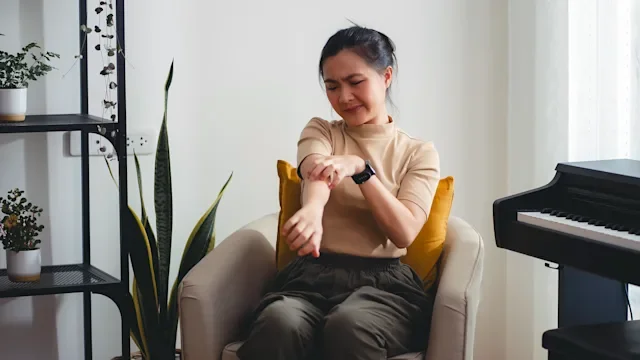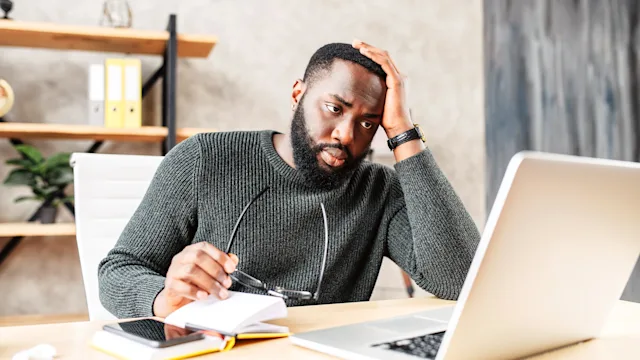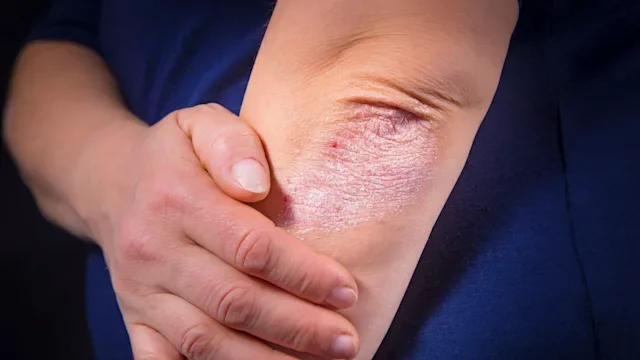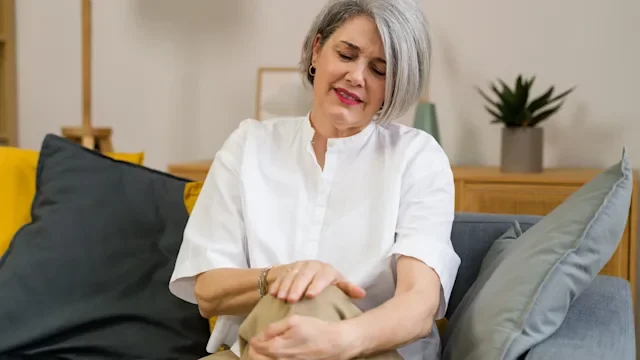Reena Ruparelia has lived with psoriasis since she was in high school.
At first, she was ashamed of her skin, but now she speaks out about breaking the stigma of skin conditions.
She has found a combination of yoga, mindfulness, an anti-inflammatory diet, and medication can help.
Reena Ruparelia used to think people were staring at her hands and feet when she was out in public.
Reena, a 43-year-old life and well-being coach, describes herself as a "skin empowerment leader." She has lived with psoriasis — an autoimmune condition that causes patches of red, flaky skin — since she was 14.
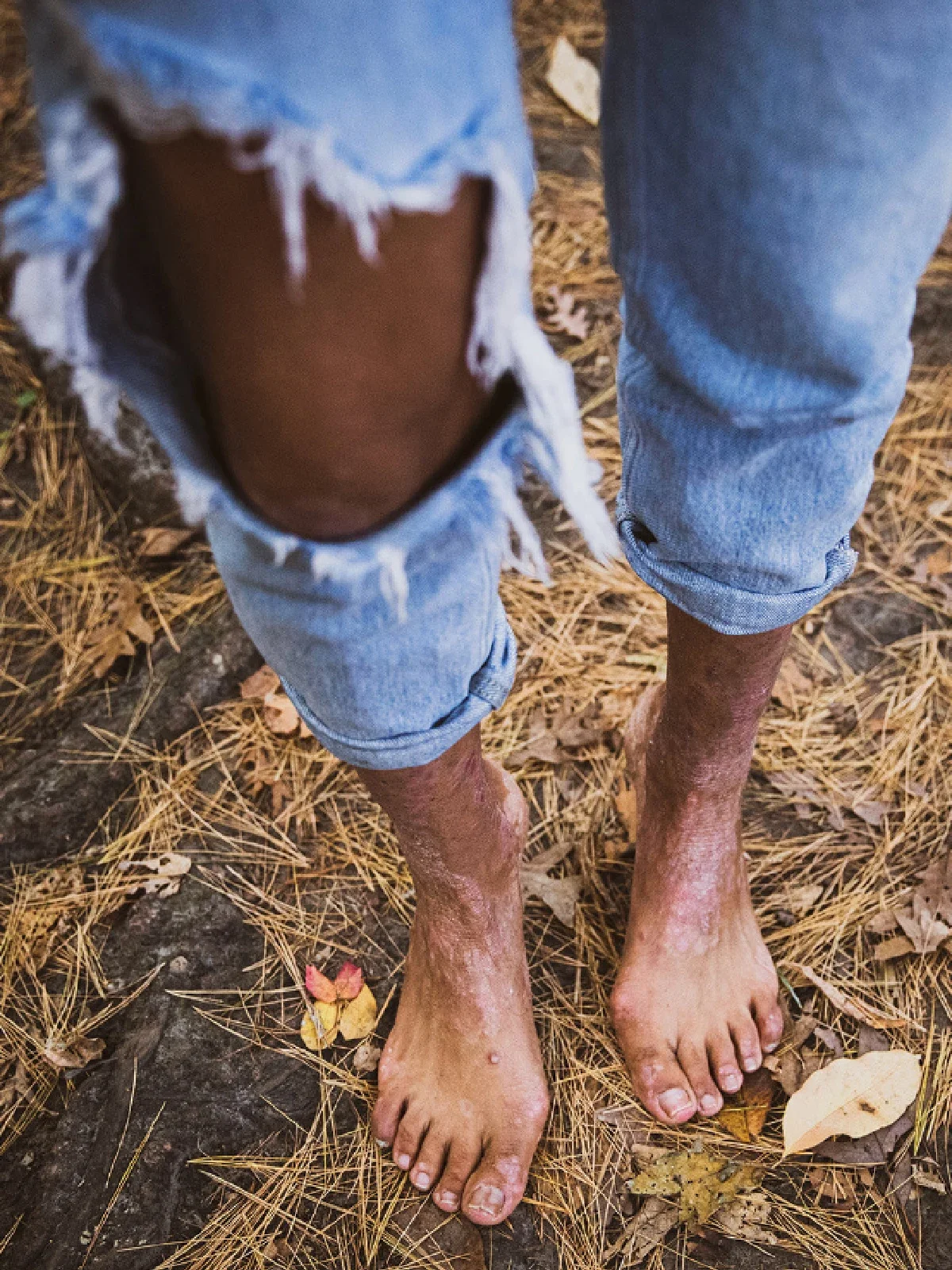

Today, Reena runs an Instagram page where she shares photos and inspiration for others living with psoriasis. She's also an advocate for people with skin conditions. In addition to being part of an online support community, she speaks regularly about her condition and has appeared in Dove ads promoting women living with skin conditions.
Reena knows some people do stare at her skin, which can sometimes look sore with inflamed, red patches.
"I can't say I always blame people" for staring, she says, "because not everyone’s going to understand skin conditions."
The heartbreak of having a chronic condition like psoriasis
Reena, a Toronto native, has written about what it's like to have psoriasis. She says at times, it left her feeling self-conscious and embarrassed.
For her, the emotional impact of having a chronic condition has been painful. The worst part was finding out that there was no cure.
"It was kind of heartbreaking to hear it — that I'd be living with this skin condition for the rest of my life," she says. "But then, as time went on, I found my way through."
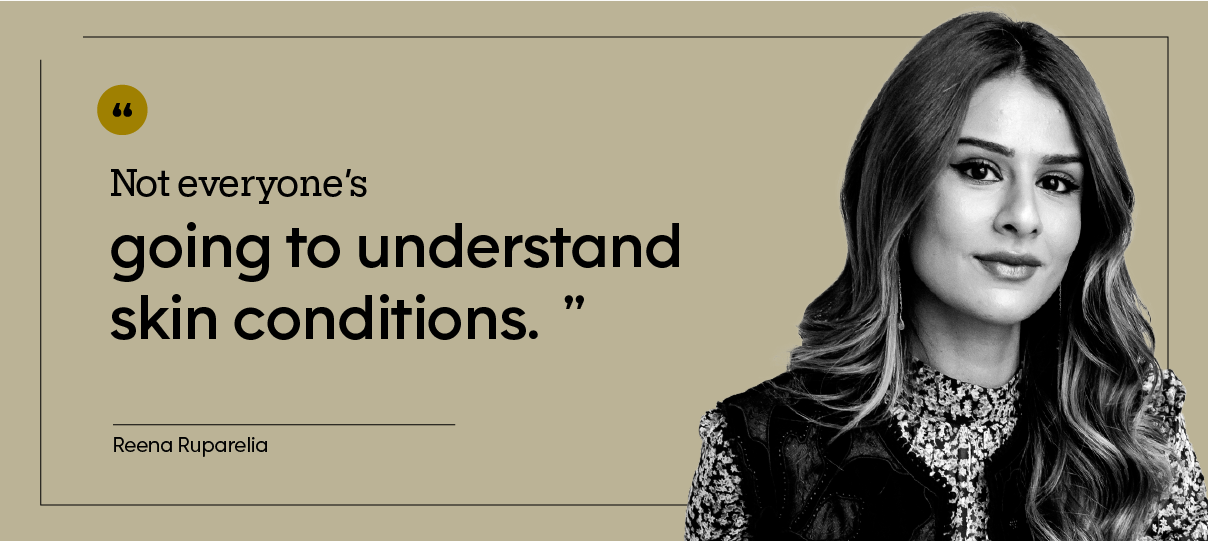
That meant dealing with feelings of self-loathing and isolation before she found coping skills. Finding a way to manage her condition and her feelings was a process — one that she still deals with today.
- PrednisoneGeneric Deltasone and Rayos and Sterapred
- MedrolMethylprednisolone
- Fluticasone PropionateGeneric Cutivate and Flonase
Adopting mindfulness and meditation as coping skills
Since 2013, Reena has been studying mindfulness and meditation.
"That helped me start to detangle some of the ways I was talking to myself, feeling about myself, and learning to be more empathetic to my struggle and what I was going through," she says. "Then I started to ask myself better questions after connecting with others and starting to become more mindful."
She began practicing yoga, which lowered her stress level. She also acknowledged that she wasn't alone and that she needed support and care. She took a retreat to tune in to her thoughts and practice mindfulness.
"I started studying deeply and practicing it in my own life and noticed a huge difference in the way that I thought about myself and how I talked to myself," she says. "That really, really helped me and continues to help me in reframing my experience as someone living with a chronic condition."
How lifestyle choices play a role in managing psoriasis triggers
Reena also adopted better habits, like getting more sleep, using moisturizer, and taking vitamins. She also tried an anti-inflammatory diet.
When it comes to diet, people with psoriasis can have varying triggers. For Reena, alcohol and sugar were among the things that triggered her symptoms. Paying attention to what she was eating helped her understand what would cause a flare.
Medication, too, has played a big role in reducing symptoms. Most recently, her doctor prescribed her a biologic for her symptoms. After trying the first one, she noticed inflammation around her eyes. Reena went back to her doctor, who switched her to a different biologic that she took for 6 months. Although it dramatically reduced her symptoms, she started to have eczema. So she decided to stop taking it.
She's interested in trying light therapy next. And she's open to trying new medication. But she's also considering alternative treatments, like Eastern medicine and holistic nutrition.
"I just really want to take care of my body from the inside out," she says. "And so that’s the way I'm approaching it now, which is very different than even just 6 months ago."
She notices that some of her main triggers for flares are stress, change of season, and not eating well.
An online community was the support she needed
Despite how far she's come, Reena still has good days and bad days.
Her approach to each day is what's different. In the past, she would run to the mirror as soon as she woke up to see if her psoriasis was spreading. Now, she uses a different process.
"I talk to myself," she says, saying things like, "'I'm a partner with my body and my skin, and we can figure this out. We're gonna get through this. And even if its really bad right now, we're gonna find a way through like we always have.'"
She uses tools like affirmations to boost her confidence, practices gratitude, and reminds herself what's working well.
Finding a community online has also made a huge difference.
"Coming to a place of acceptance with my skin came from connecting with others, working with a community, sharing my struggles, my vulnerability," she says. "I'm shocked at how much support and care that I've gotten from people I know and people I don't know on the internet. And how helpful it was to actually share and let it out — [dealing with psoriasis was] something I thought I had to be strong about, something I thought I had to do on my own."

Why trust our experts?






